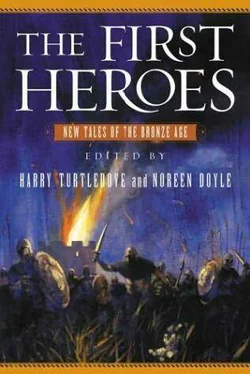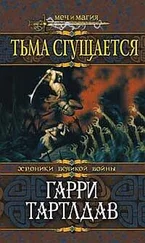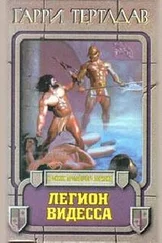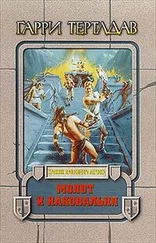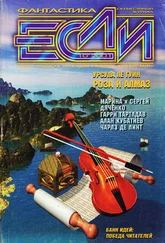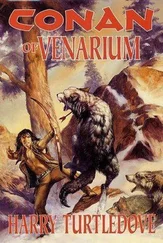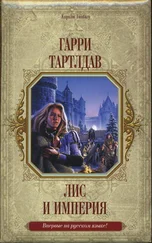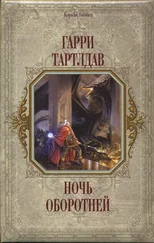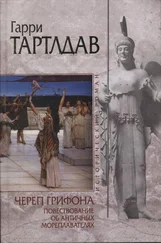Гарри Тертлдав - The First Heroes
Здесь есть возможность читать онлайн «Гарри Тертлдав - The First Heroes» весь текст электронной книги совершенно бесплатно (целиком полную версию без сокращений). В некоторых случаях можно слушать аудио, скачать через торрент в формате fb2 и присутствует краткое содержание. Жанр: Фантастика и фэнтези, на английском языке. Описание произведения, (предисловие) а так же отзывы посетителей доступны на портале библиотеки ЛибКат.
- Название:The First Heroes
- Автор:
- Жанр:
- Год:неизвестен
- ISBN:нет данных
- Рейтинг книги:3 / 5. Голосов: 1
-
Избранное:Добавить в избранное
- Отзывы:
-
Ваша оценка:
- 60
- 1
- 2
- 3
- 4
- 5
The First Heroes: краткое содержание, описание и аннотация
Предлагаем к чтению аннотацию, описание, краткое содержание или предисловие (зависит от того, что написал сам автор книги «The First Heroes»). Если вы не нашли необходимую информацию о книге — напишите в комментариях, мы постараемся отыскать её.
The First Heroes — читать онлайн бесплатно полную книгу (весь текст) целиком
Ниже представлен текст книги, разбитый по страницам. Система сохранения места последней прочитанной страницы, позволяет с удобством читать онлайн бесплатно книгу «The First Heroes», без необходимости каждый раз заново искать на чём Вы остановились. Поставьте закладку, и сможете в любой момент перейти на страницу, на которой закончили чтение.
Интервал:
Закладка:
On the positive side, I am on a friendly footing now with the Lapith chief. That seems sure to be of value when I find the correct ship and reach Atlantis.
I have discussed this with Argos. Argos (Puk 27) is the digitized personality of the boat. (I wonder if the women who lay with him realized that?) He points out—wisely, I would say—that the way to locate a vessel is to visit a variety of ports, making inquiries at each. In order to do that, one should be on another vessel, one making a long voyage with many ports of call. That is my situation, which might be far worse.
We have sighted two other boats, both smaller than our own.
Our helmsman, said to be an infallible weather prophet, has announced that we will have a stiff west wind by early afternoon. Our course is northeast for Samothrakah, which I take to be another island. We are forty-nine men and one woman.
She is Atalantah of Kaludon (Pukz 28-30), tall, slender, muscular, and quite beautiful. Ekkiawn introduced me to her, warning me that she would certainly kill me if I tried to force her. I assured her, and him, that I would never do such a thing. In all honesty I cannot say I have talked with her, but I listened to her for some while. Hunting is the only thing she cares about. She has hunted every large animal in her part of the world and joined Eeasawn's expedition in hope of hunting grups, a fierce bird never seen west of our destination. They can be baited to a blind to feed upon the bodies of horses or cattle, she says. From that I take them to be some type of vulture. Her knowledge of lions, stags, wild swine, and the dogs employed to hunt all three is simply immense.
At sea again, course southeast and the wind dead astern. Now that I have leisure to bring this account up to date, I sit looking out at the choppy waves pursuing us and wonder whether you will believe even a fraction of what I have to relate.
In Samothrakah we were to be initiated into the Cult of Persefonay, a powerful goddess. I joined in the preparations eagerly, not only because it would furnish insight into the religious beliefs of these amoral but very superstitious men, but also because I hoped—as I still do— that the favor of the goddess would bring me to the rock whose name I have forgotten, the rock that is my proper destination.
We fasted for three days, drinking water mixed with wine but eating no solid food. On the evening of the third day we stripped and daubed each other with a thin white mixture which I suspect was little more than chalk dispersed in water. That done, we shared a ritual supper of boiled beans and raw onions. (Pukz 31 and 32)
Our procession reached the cave of Persefassa, as she is also called, about midnight. We extinguished our torches in an underground pool and received new ones, smaller torches that burned with a clear, almost white flame and gave off a sweet scent. Singing, we marched another mile underground.
My companions appeared undaunted. I was frightened, and kept my teeth from chattering only by an effort of will. After a time I was able to exchange places with Erginos and so walk behind Hahraklahs, that tower of strength. If that stratagem had not succeeded, I think I might have turned and run.
The throne room of the goddess (Pukz 33—35) is a vast underground chamber of spectacular natural columns where icy water drips secretly and, as it were, stealthily. The effect is of gentle, unending rain, of mourning protracted until the sun burns out. The priestesses passed among us, telling each of us in turn, "All things fail. All decays, and passes away."
Ghosts filled the cavern. Our torches rendered them invisible, but I could see them in the darkest places, always at the edge of my field of vision. Their whispers were like a hundred winds in a forest, and whenever one came near me I felt a cold that struck to the bone.
Deep-voiced horns, melodious and tragic, announced the goddess. She was preceded by the Kabeiri, stately women and men somewhat taller than Hahraklahs who appeared to have no feet. Their forms were solid to the knees, where they became translucent and quickly faded to nothing. They made an aisle for Persefonay, a lovely young woman far taller than they.
She was robed in crimson, and black gems bound her fair hair. (Pukz 36 and 37) Her features are quite beautiful; her expression I can only call resigned. (She may revisit the upper world only as long as the pomegranate is in bloom—so we were taught during our fast. For the rest of the year she remains her husband's prisoner underground.) She took her seat upon a rock that accommodated itself to her as she sat, and indicated by a gesture that we were to approach her.
We did, and her Kabeiri closed about us as if we were children shepherded by older children, approaching a teacher. That and Puk 38 will give you the picture; but I was acutely conscious, as I think we all were, that she and her servants were beings of an order remote from biological evolution. You will be familiar with such beings in our own period, I feel sure. I do not recall them, true. I do recall that knowledge accumulates. The people of the period in which I find myself could not have sent someone, as I have been sent, to join in the famous voyage whose name I have forgotten.
Captain Eeasawn stepped forward to speak to Persefonay. (Pukz 39 and 40) He explained that we were bound for Aea, urged upon our mission by the Pythoness and accompanied by sons of Poseidon and other gods. Much of what he said contradicted what I had been told earlier, and there was much that I failed to understand.
When he had finished, Persefonay introduced the Kabeiri, the earliest gods of Samothrakah. One or more, she said, would accompany us on our voyage, would see that our boat was never wrecked, and would rescue us if it were. Eeasawn thanked her in an elaborate speech, and we bowed.
At once every torch burned out, leaving us in utter darkness. (Pukz 39a and 40a infrared) Instructed by the priestesses, we joined hands, I with Hahraklahs and Atalantah, and so were led out of the cave. There our old torches were restored to us and rekindled. (Puk 41) Carrying them and singing, we returned to our ship, serenaded by wolves.
We have passed Ilion! Everyone agrees that was the most dangerous part of our voyage. Its inhabitants control the strait and permit no ships other than their own to enter or leave. We remained well out of sight of the city until night.
Night came, and a west wind with it. We put up the mast and hoisted our sail, and Periklumenos dove from the prow and took the form of a dolphin (Puk 42 infrared) to guide us though the strait. As we drew near Ilion, we rowed, too, rowing for all we were worth for what seemed half the night. A patrol boat spotted us and moved to intercept us, but Phaleros shot its helmsman. It sheered off—and we passed! That shot was five hundred meters if it was one, and was made by a man standing unsupported on a bench aboard a heeling, pitching boat urged forward by a bellying sail and forty rowers pulling for all they were worth. The arrow's flight was as straight as any string. I could not see where the helmsman was hit, but Atalantah says the throat. Knowing that she prides herself on her shooting, I asked whether she could have made that shot. She shrugged and said, "Once, perhaps, with a quiver-full of arrows."
We are docked now at a place called Bear Island. We fear no bears here, nor much of anything else. The king is the son of an old friend of Hahraklahs's. He has invited us to his wedding, and all is wine and garlands, music, dancing, and gaiety. (Pukz 43—48) Eeasawn asked for volunteers to guard the boat. I volunteered, and Atalantah offered to stay with me. Everyone agreed that Eeasawn and Hahraklahs would have to be present the whole time, so they were excused; the rest drew lots to relieve us. Polydeukahs the Clone and Kaeneus lost and were then subjected to much good-natured raillery. They promise to relieve us as soon as the moon comes up.
Читать дальшеИнтервал:
Закладка:
Похожие книги на «The First Heroes»
Представляем Вашему вниманию похожие книги на «The First Heroes» списком для выбора. Мы отобрали схожую по названию и смыслу литературу в надежде предоставить читателям больше вариантов отыскать новые, интересные, ещё непрочитанные произведения.
Обсуждение, отзывы о книге «The First Heroes» и просто собственные мнения читателей. Оставьте ваши комментарии, напишите, что Вы думаете о произведении, его смысле или главных героях. Укажите что конкретно понравилось, а что нет, и почему Вы так считаете.
